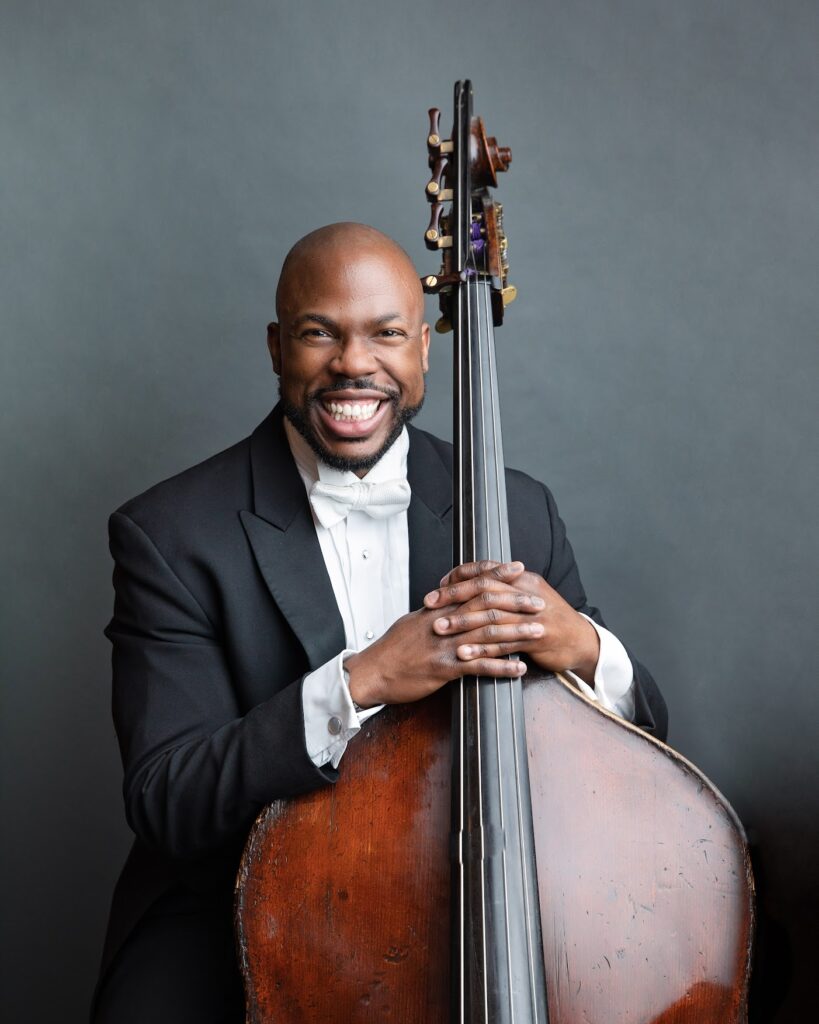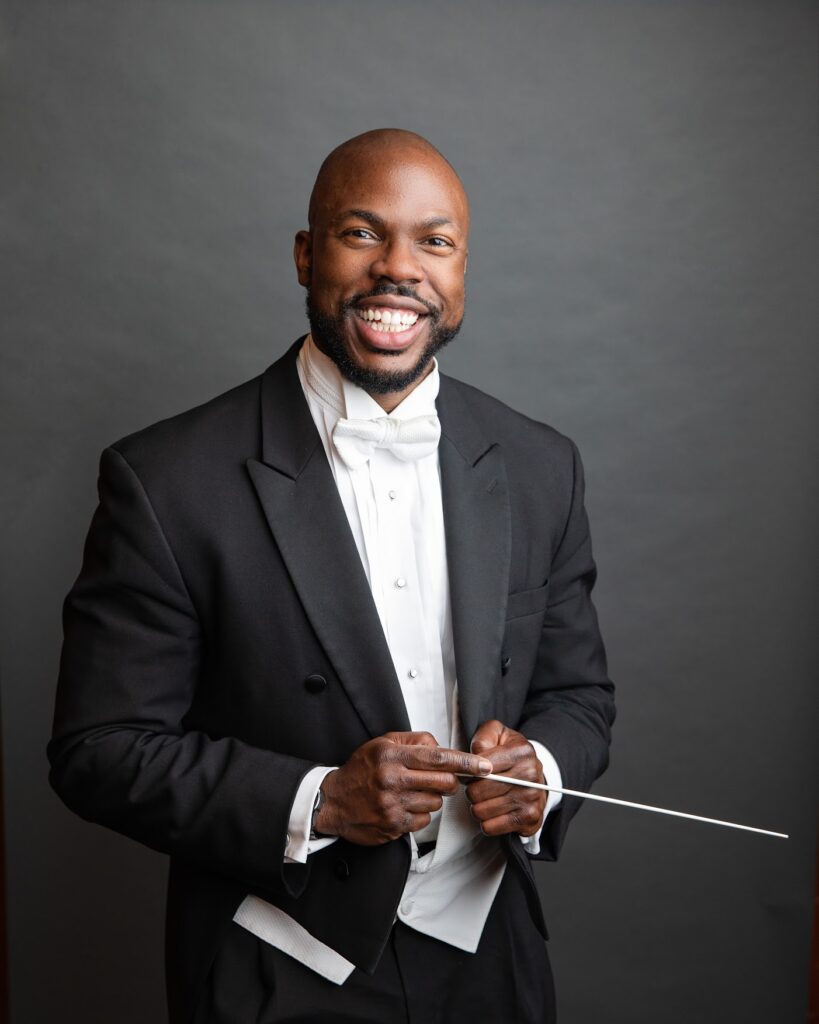
Joseph Conyers Orchestrates Opportunities
Through the Power of Music
Written By Kim Rusell
I have always believed music to be a universal way to communicate feelings. It can tap into our emotional intelligence and act as the native tongue of emotion. With one song, an artist offers the listener a description oftheir feelings. It’s an undeniable language that Joseph Conyers is fluent in. As a renowned musician and youth activist, Conyers set out to raise the collective consciousness by creating a frequency of change that can leave the world a better place than we found it. As both founder and executive director of his non-profit Project 440, Conyers uses his platform to address the problems our younger members of society face, such as lack of opportunities and resources. The non-profit’s name, Project 440, is a symbolic representation of leadership. Pitch A is the first note played to tune an orchestra, which has a frequency of 440 hertz. “So just like that’s the first note you hear at any concert, we want the young people we work with to be leaders in their communities through music,” he says. Everyone has an origin story. With Conyers, it all began with the music. For years, his musical talents have been pulling the strings of emotions far and wide.
When asked how he discovered his passion for music, it felt serendipitous to hear Joseph Conyers respond, “Music found me.” Conyers was raised by a musically inclined family in Savannah, Georgia. His mother was strongly devoted to the church and connected with the Savannah Symphony Chorale. She believed that classical music was a beautiful genre and wanted her children to learn the language of instruments so that they could become a part of it. He was raised under the musical influence of gospel and classical pieces, reading music since the age of 3, learning the piano at age 5, and the bass by age 11. With his 221-year-old bass, affectionately named Norma, by his side, Conyers trailblazed an awe-inspiring and prestigious path, but not one without obstacles.But, music remained the constant that helped him overcome the rough patches and persevere.
As the world caught up with his greatness, numerous honors and awards were bestowed along his journey. In 2018, Conyers was honored with the highest tribute presented to a musician of the Philadelphia Orchestra: the C. Hartman Kuhn Award. This award was followed by the Medal of Excellence from the Sphinx Organization. Many accolades decorate his resume of accomplishments, but Conyers shattered the proverbial glass ceiling when he became the orchestra’s 1st Black principal bassist/instrumentalist. I had the pleasure of attending one of his performances during the Holiday season. I took my seat to enjoy Elf, a classic Christmas film. This time, with the score performed by the orchestra. Enchanted by the unique experience of being an audience to a movie and a live concert, I listened to the music fill the room, cascading through the auditorium; it was more than just the Christmas spirit that made me smile. Party of 1, I chatted with those around me at intermission. I eagerly shared Conyers’s identity, the instrument he plays, and even, his IG account. By the concert’s end, the whole row pointed him out, exclaiming, “I see him!” The feeling of representation was palpable as we clapped in a standing ovation. It felt like the concert halls of the Philadelphia Orchestra became a land of new possibilities.
Reflecting on his response to the question: “How does love show up in your art,” Conyers expressed that the love of his art allows him to relate with others, providing things that cannot be put into words. “As a performer, to provide people that sense of solace, a safe space mentally, a sense of respite after a trying period, or something that connects with their soul, it really is love. We learned techniques and skills to connect and provide collective love to our audience.” Classical music isn’t foreign to me, but after conversing with Conyers and sitting through one performance, I felt connected to it in a way I had not felt before; I became a walking testimony. Conyers’ endeavors beyond the stage are like the perfect verse over a classical beat, much like his favorite composer, Johannes Brahms, who was described as both a traditionalist and an innovator.

Joy radiated from him as he spoke of his love for music, which was equally matched by his passion for his non-profit, Project 440. Established in 2007, Project 440 aims to foster positive change and create an inspirational hub for aspiring Einsteins, Brahms, Daniel Hale Williams, and Conyers himself. Project 440 quickly expanded its focus from offering community concerts to full-on youth civic engagement where “the students are charged with doing community projects… with an artistic lens,” Students lead the projects from start to finish, including design, budgeting, and implementation. As expressed in Project 440 mission statement, the organization “helps young people use their interest in music to forge new pathways and change their communities.” Conyers believes that the skills acquired through musicology such as discipline, patience, and constructive criticism, along with the professionalism gained from civic engagement projects, are highly valuable and can be applied to any career trajectory. These skills can provide better opportunities for success in any chosen career.
Working in concert with the Philadelphia School District as director of the Philadelphia All City Orchestra, word of Project 440 spread directly to participating students. To expand the program’s reach, Conyers aims to go into communities where music programs still need to be improved. He envisions a future where organizations work together to offer students a direct path to achieving their dreams. Tenacious in his convictions, Joseph Conyers maintains that he is “doing what he can to be a point of influence… making sure the kids are not forgotten, are given the opportunity to define the success they deserve as human beings on the planet.” There’s no greater thank you than seeing his students thrive. Almost as if confirmed by the universe, a former student crossed his path during the interview. Excited to see each other, they shared a heartfelt moment and promised to catch up at a later date. It “hertz” so good watching from the corner of my chair. The culmination of that moment was a clear example of loving through art. Some may perceive him as busy as a man of many hats with enormous talent and heart, but Conyers is looking for solutions to improve things: “While we are on Earth, we are just passing through.” And as the old camp-ground adage proclaims, we must “leave it better than we found it.”
